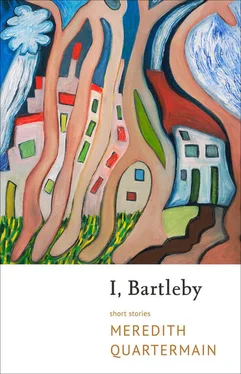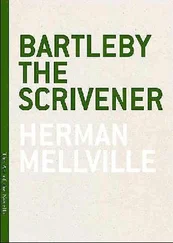When Dad first had the studio, I was sixteen and sleeping on a mattress in his friend’s attic while Dad employed me as his helper making art for a high-rise development — my pay being the occasional ticket to a movie or rock concert. His project was to cast whole pictures in polyester resin the same way he used to cast letters for signs, a process he invented himself and was proud of — no one else had ever made pictures in plastic by reversing the image, painting what you see first, layering in background scenes, then hardening a stout layer of plastic behind it so that a durable, easily cleaned panel came out of the mould. The trouble was that air pockets could get trapped on the picture surface, or a chip of the picture could stick to the mould, or he could forget to stencil in a background tree or colour. Each layer of the picture had to be set before the next one was added; days passed before we could find out whether one of these disasters had happened, and when they did he lost more days cursing and smashing the failed work, hurling moulds into the trash, cursing his own clueless stupidity, his hopeless, useless bungling. I would slip out of the studio and walk along the tracks, wondering why it had to be so difficult — why couldn’t he paint as he did in his watercolours — the brush conjuring up in minutes with a squiggle, a swoop, a dash and a dot — trees, lakes, reflections, fishermen, cottages, farms.
I dreaded unmoulding, but some days the pieces came out well and we added them to the pile of good ones that were to go opposite the elevator doors in the new high-rise. One night, in a celebratory mood, he took me through rain-soaked streets past darkened windows of the Chinese Times and the shops that sold incense, bamboo fans, tea, and golden roaring lions, shops of mannequins wearing silk sheaths of sapphire, turquoise, scarlet, and pearl embroidered with dragons or plum blossoms or paisley teardrops, high-collared dresses that hugged hips and bust, had slits up the thighs, and a row of frog buttons closing the placket over the right breast. We stopped to look at the exotic beauty of the dresses, and a few months later he would give me one and thank me for being his helper, and then insist that I put it on, wear lipstick, and do my hair up while he set up floodlights and tripod to photograph me with my great legs in a pair of his girlfriend’s heels. I let the satiny skin turn my hips and breasts into a woman people would whistle at on the street, a chic stranger filled with mystique that he knew but I didn’t, though she’d always hovered around me, like the possibility of becoming a movie star if only I could be in the right place at the right time. For a moment I would try it out like an audition for an uncomfortable part, then I’d go back to being the jeans kid I’d always been.
Aren’t those cheongsams something, he said as we stood in front of the dress shop. After that, we carried on for a bit before ducking into an alley, where we walked by trash cans and barred, sooty windows to an orange door that’d been kicked and pried a few times. What were we doing? He’d promised Chinese food. Why didn’t we go into the restaurant by the front entrance? Maybe they handed out leftovers here; he didn’t mind getting things on the cheap, like that construction job he had where he stuffed his pockets with extra chops from the camp lunch and brought them home for dinner. Beyond the orange door, we stepped into a steamy, overheated room packed with men sitting at tables and standing at stoves along one wall. The stove men flipped and tossed things in huge woks, sending out volleys of shouts and chatter, as they dished up platters to the men on the other side of the room, who were not, as I first thought, a team of kitchen helpers for a vast restaurant in the front of the building, but actually the customers. By pointing and gesturing, Dad got us a couple of vegetable platters and chopsticks and some rice and soup from vats on the stove, and we crammed in with the men seated at the tables. This is where you get the real Chinese food, he said, where the working people eat.
When I was six, he wedged a chopstick between his middle finger and crotch of thumb and showed me how to wiggle another stick above it. We practised picking up rows of peas, not running the length of the sticks but pinched in a stack perpendicular to them. I didn’t realize then that most people’s dads didn’t cook anything, let alone Chinese dishes. Out would come the bamboo steamer, the wok, the wire noodle scoop, and the rice bowls and china spoons painted with dragons or kimonoed women or patterned with rice grains. Dried mushrooms would be soaked, garlic and ginger finely chopped, bok choy and scallions prepared, tins of bamboo shoots and water chestnuts opened, chicken chopped into bite-size chunks, noodles deep fried, broth made for egg-drop soup, shrimp deveined and minced with pork and sherry for wontons, ribs red-cooked with star anise for sweet and sour, salty preserved plums made into plum sauce. Mom, who was a professional dietitian and very good cook, became sous-chef and deferred completely to all his commands in the kitchen. Long after their last miserable argument, long after they’d broken up for the last time, she told me it was a friend boasting about his Chinese cooking that had originally brought them together. He’d learned sometime in the forties — how, where, why she didn’t know or didn’t remember.
Early on in their marriage, in 1956, they gave the smallest room of our two-bedroom Toronto apartment to Foo Kong. My sister and I had the larger room, while they slept in the living room. Foo Kong came from somewhere on the other side of the planet called Formosa; he was working on a Thesis, which sounded very important and also sounded like something six-year-olds were not meant to have. Unlike Dad, who wore paint-spattered trousers and worn-out shirts, and worked in a sign-making shop, Foo Kong wore black trousers, jacket and tie with crisp white shirts, and went to the University, where I was pretty sure people spent a lot of time writing like Foo Kong did in his room, where he spent hours with his wicker-handled pot of green tea and his tiny tea bowl. I had a feeling that everyone in Formosa wore black, that it meant something serious and dangerous about the place and about being Foo Kong — serious and powerful like Chiang Kai-shek, which to me was mainly a word that was fun to say because Dad said it.
Fun like his laughing Buddha statuette carved of reddish wood, hands over his head, enormous belly bulging from his draped robes. Why wasn’t this laughing man in the Buddhist church Dad took me to where all the men wore black except Dad, in sport shirt and green trousers, and where you had to Meditate, which meant Be Quiet! and Sit Still! like another place he took me to on Sunday — the Quaker meeting — except that in Quaker meeting you could talk if you really felt like it, though not if you were only six.
Dad’s family were all English, yet being Chinese seemed important to him, just as writing his thesis seemed important to Foo Kong. I reasoned that to be important to Dad or Foo Kong I would have to either become Chinese or become a thesis. Or I would have to eliminate my competition. In bed at night I carefully adjusted my eyelids so that they would slant, and during the day I pulled up the outer corners so I would look like the women painted on Foo Kong’s tea bowl.
Foo Kong was often out and his door shut, but even when he was in, it was shut because he was working in there writing on the piles of paper stacked along one wall, on shelves that almost blocked out the tiny window. I drove my trike past the closed door up and down the long hall from the living room to the kitchen waiting for the door to open, and if it did I would leap onto Foo Kong’s cot and kibitz and roughhouse with him like I did with Dad. Foo Kong would gently chuckle and lift me back out the door, and I noticed he was much smaller and thinner than Dad. When I laid out some of his thesis and drove my trike over it, the trike was confiscated and I was strictly forbidden from going near Foo Kong and his room. Yet he remained as intriguing as the promise in a Christmas present under the tree, which you want to shake and poke and rattle and peer under the wrappings of.
Читать дальше












